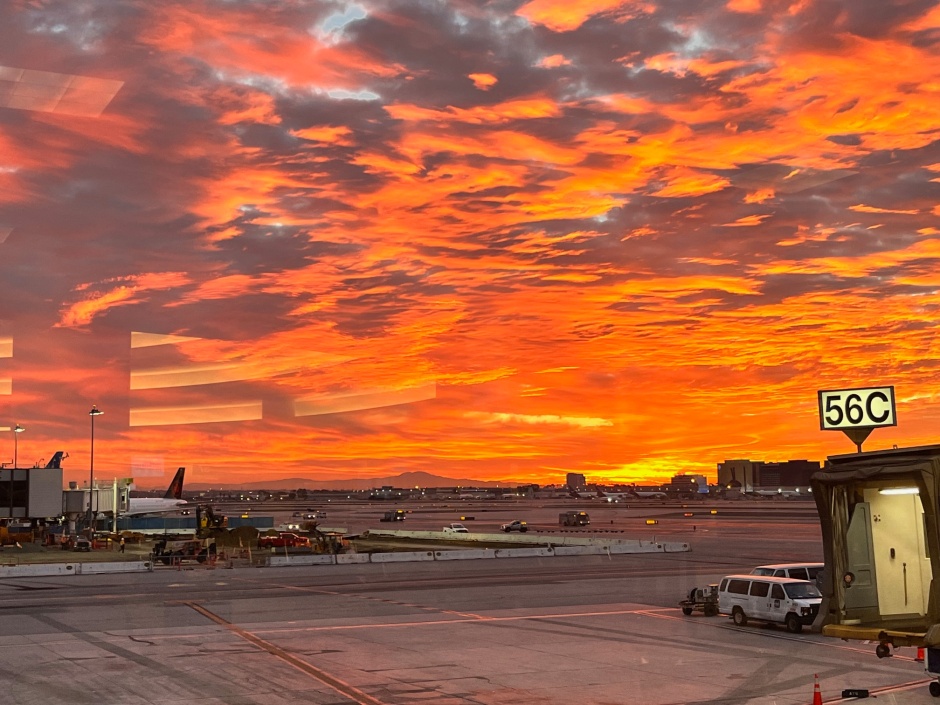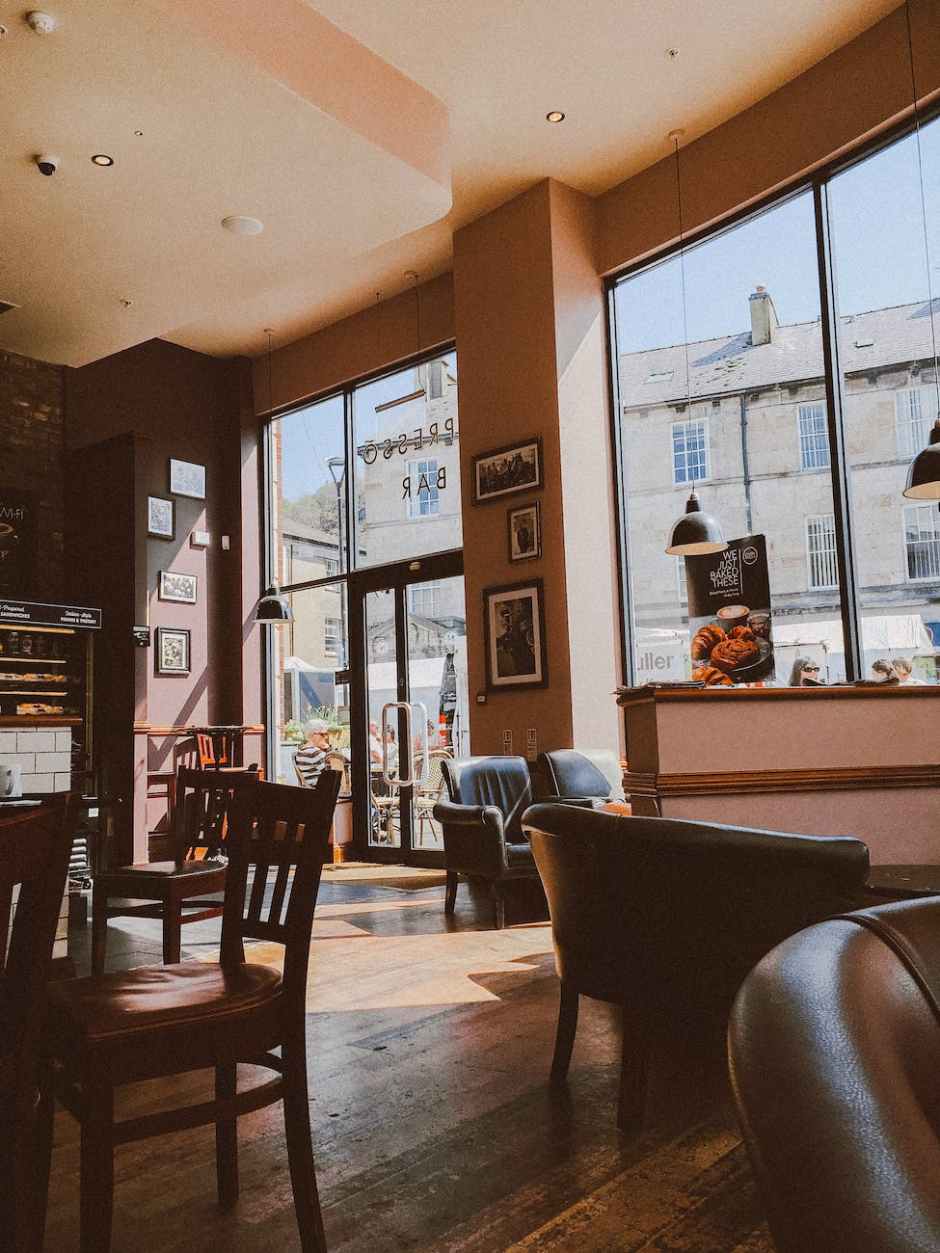Boston is cold. This is the first thing I think as I step out of Logan International Airport, arms heavy with bags and suitcases, and head toward ground transport. The airport is busy as travelers, eager to get on their way with weekend plans, rush or amble to airport gates with their coffee, bags and kids in tow.
This morning we left sunny California where we had 10 beautiful days with three of our children and their growing families. A grandson who is definitely cuter than your grandsons (insert laugh emoji) was part of the package and the soft feel of his body falling asleep on my chest will not easily leave me. How amazing is it to witness a future generation growing? To be welcomed as a part of his life? Though I love words, they fail me as I think about this.
We left as a beautiful sunrise made its way across the western sky, flaming colors transforming an airport into a blaze of otherworldly beauty and light. We left and an ache settled into my heart and body.
Ten days does not feel like enough. I felt the same when I left my oldest daughter and her family in early December. Those grandchildren are older but still young enough that they are wide-eyed with wonder, challenging any cynical or weary adults. Life is a daily adventure of exoskeletons, seeing the stars with their naked eyes, and digging down to the water table (these are their words, and they are way, way too smart for me.)
And I think about how Boston is cold, and Boston feels lonely. I ask myself as I’ve done so many times before – are families really supposed to live so far away from each other?
I come from a long line of movers. My paternal grandmother and maternal grandfather both arrived as immigrants in the United States – one from Leeds, England and the other from St. Petersburg, Russia. They were both children and they left extended family in their countries of origin. My mom and dad were first generation Americans, born and raised in Massachusetts. Unlike their parents, they left Massachusetts as adults, a young married couple with one baby. They traveled eight thousand miles, entering into a completely different way of living than either of their parents, raising their children far from extended family.
Yet, the people who stepped in as proxy uncles and aunts were as much a part of my life as any relative could ever be. Dr. Mary, Auntie Hannah, Auntie Bettie….the list goes on. I think about them every day. They reflected grace, love, humor, and care to me and my brothers. It is hard to find that same dynamic in the United States. As much as I want to say that a church, faith community, or a chosen family fills in those gaps, I have to search hard to see it reflected in the same way. I don’t see people dropping everything to cuddle a baby or make a meal. I witness more apologetic requests, asking for help with hesitancy and a side order of guilt. Guilt that we can’t cope on our own, guilt that we are needy, guilt – dare I say it – that we need people to step in when we are sick, or sad, or have a baby, or just because. We are created for community, created for more than a solitary life. Monks give up the world to live apart and pray for the world, but they know the importance of community and they live it every day.
Are families really supposed to live so far away? I pose the question to a few friends and the responses are quick. No. No – they aren’t. My friend Brit adds to that “I think no, but also it is just a part of the brokenness of the modern world.” There is much truth to that statement.
Faraway family has become normal in a world of displacement. There are those of us who have chosen to move, and those who are displaced through force, not by choice. I think of the massive displacement and death that Palestinians are facing daily and my heart settles into a dull and constant ache for these faraway families. I think of those still held in captivity, taken now months ago and feel an equal ache.
Despite seeing more of this in the modern world, my faith tradition tells me that none of this is new. Families have been torn apart for centuries, some by force, some by choices both good and harmful, and others following a God whose ways are mysterious, whose purposes often show up in future generations not in the generation that makes the move. I think of Jesus, whose birth Western Christians have celebrated, and Eastern Christians celebrate tomorrow. His birth was a transition from one home to another. He left a home where he was one with God the Father and entered a place where he would be both worshipped and mocked; adored and rejected; believed and killed because of disbelief.
He knows what it is to have faraway family, to feel forsaken and alone, to long for the day when he would be reunited. And somehow, he will continue to use faraway family and those close by to remind us of who he is, and who we are; to remind us that we belong, and that family is bigger than we can imagine; to remind us that we are not alone and that our griefs and joys matter; to continue to work out the miracle and mystery of salvation and redemption.
As we move into our Orthodox celebration, we will sing a Nativity hymn “Today the Virgin gives birth to the Transcendent One, and the earth offers a cave to the Unapproachable One! Angels, with shepherds, glorify Him! The wise men journey with the star! Since for our sake the Eternal God is born as a little child.” And in singing, I will remember this journey from heaven to earth, so that family and all of creation could be redeemed and healed to the glory of God.


